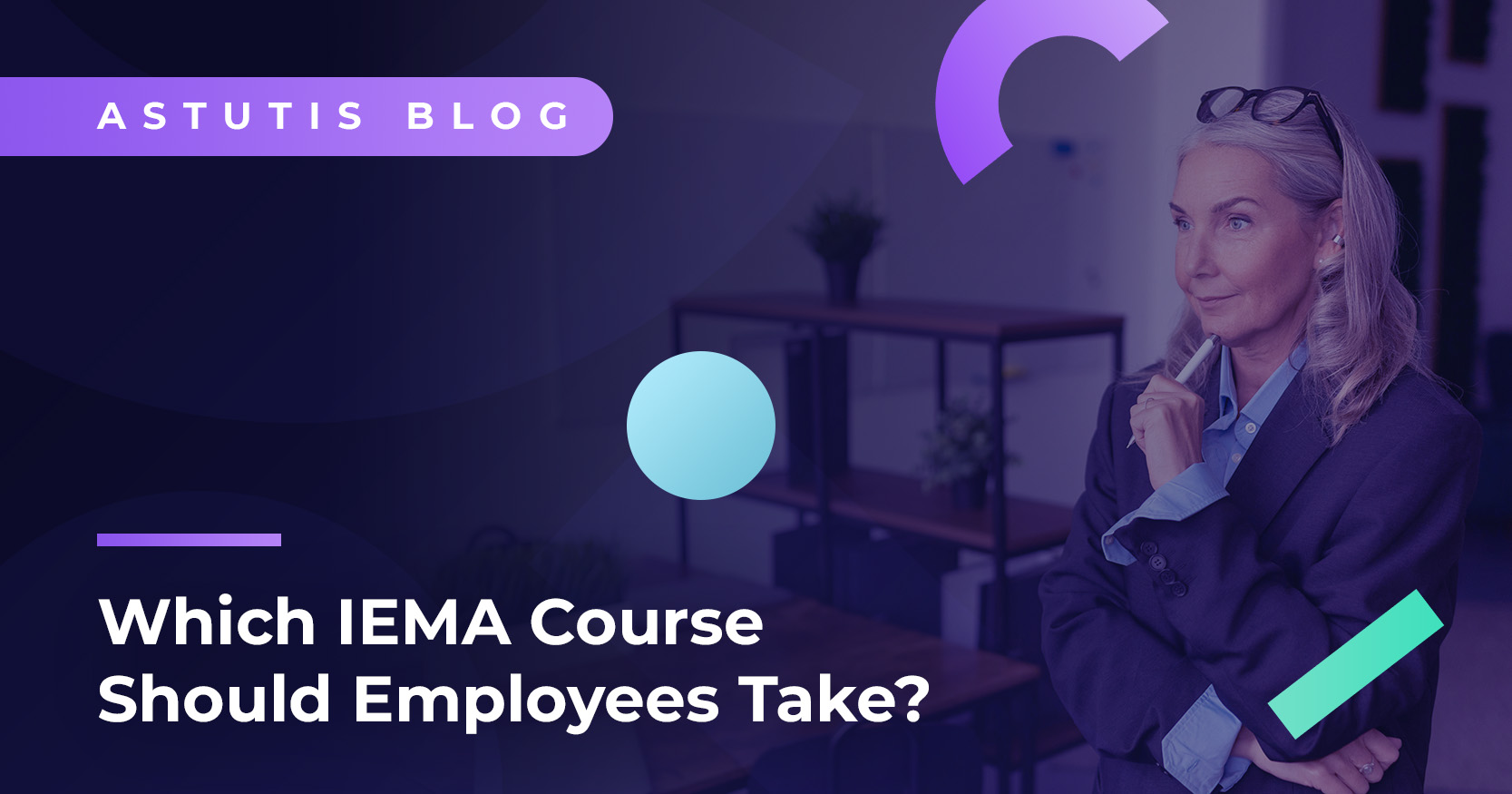NEBOSH Certificate Exam Day Guidance Part 1
Please note that NEBOSH has now introduced an open book exam, therefore the content on this page is no longer applicable.
Read the latest advice on the new open book exam here.
Now the hard work of preparing for the exams is over. That day has finally arrived – exam day. It can be a worrying and stressful time and you need to ensure that you do yourself justice after all the hard work you’ve put in to revising.
Thinking about the exam itself can lead to many questions, such as:
- What are the arrangements on exam day?
- What will the exam paper look like?
- The command words – how do I ensure my answer is in line with these? Covered in Part 2 Relevant only to people taking the NEBOSH Certificate 2014 spec
- How do I ensure I answer the questions fully and not go off on a tangent?
In this blog, we will have a look at points 1 and 2.
1) What are the arrangements on exam day?
You will be informed of the date, venue and time of the exam. The NGC exam(s) usually start at 9.30am so make sure you arrive in good time for the start – you don’t want to turn up all flustered with minutes to go. Therefore make sure you plan your journey to the venue with this in mind and have all the practical details covered so you know exactly where you are going in advance including the room where the exam is taking place.
If something unexpected happens on the way to the venue or you feel ill then still try to get to the venue on time. Make sure you inform the invigilator (there are usually two invigilators) of the situation as soon as you arrive. NEBOSH operates a “Requests for Special Considerations” policy.
Reasonable adjustments
If you have already applied for “reasonable adjustments” for things such as disability, learning difficulty etc. check that these agreed adjustments are in place when you arrive at the exam venue.
Prepare yourself for the exam
Having arrived in plenty of time, make sure you only place on the exam table the things you need for the exam: your watch to keep time, pens etc. in a clear bag, keep all other items in your bag and make sure you have turned off your mobile phone. Your bag should either be kept by your desk or at the back of the room. You can have a drink on your desk, but the labels on any bottles must be removed. You are also allowed sweets as long as they don’t make any noise, so something like hard sweets without wrappers would be best.
Exam materials
The exam desks will be positioned so that you are away from everyone else and the invigilator will check your photographic ID, check your candidate number and give you your answer book. Your answer book is simply a stapled book containing pages of lined paper each page having a square in the top left corner where you write the question number you are answering. You don’t need to write anything on the front of the answer book as it has already been pre-printed with your candidate number on the front.
The invigilator will then open the exam paper envelope, give out the exam paper and let you know when the exam is starting. You can then begin. The invigilator will also indicate when the exam will finish, usually by writing the exam finish time on a board or flipchart. There will also be a clock in the room so you can check the time. The exam lasts 2 hours.
If you need to visit the toilet during the exam then be sure to attract the attention of the invigilator who will then authorise you to leave the exam room. One invigilator may accompany you out of the exam room to ensure there is no cheating or malpractice takes place.
2) What will the exam paper look like?
The exam paper comprises of an A4 sheet printed on both sides. It contains two sections, the first section is made up of one 20 mark question and you are advised to spend about 30 minutes on this question. The second section comprises of 10 questions, each worth 8 marks. You are advised to spend 1.5 hours on this section.
Don’t start writing as soon as you receive the exam paper. Read through the whole paper first. This will give you a little time to think and plan how you are going to answer the paper. You can answer the questions in any order that you like so use the first minute wisely. Some people may like to answer the question they feel more confident about first, others may prefer to leave these to the end.
Exam answer requirements
- All notes or answer planning should be done in your answer book.
- You can answer the questions in any order.
- Write the number of the question you are answering in the box on the top left of the page in the answer book.
- Start a new page for each question you are answering.
- You should not write anything on the exam paper.
Remember before and during the exam
Don’t panic: You’ve done all the hard revision prior to the exam and you don’t want to blow it because you have worked yourself up into a state and you are panicking. Try to relax a bit by taking some deep breaths. Read the paper first, and this will help to settle you into exam mode more easily.
Read the question: Make sure you read the question carefully and identify the context of the question, any key words in the question.
Read the question again: A reminder to stop and read the question again carefully before attempting the answer.
Watch the time: 2 hours sounds a long time but it will pass by very quickly during the exam. It is therefore important that you plan your time carefully. Let’s break it down:
Time usage breakdown
- 120 minutes to earn 100 marks
- 1 minute of writing= 1 mark
Question planning
20 mins of planning time for 11 questions:
- 2 minutes to read the whole question paper
- 1.5 minutes of planning for the 10 questions worth 8 marks
- 3 minutes of planning for the 1 question worth 20 marks
Question answering
- 80 minutes of writing for the 10 questions worth 8 marks
- 20 minutes of planning for the 1 question worth 20 marks
Make sure you have a watch with you on your exam table and you keep an eye on the clock in the exam room. Be disciplined, once you run out to time on one question, move onto the next – you can come back to it if you have time at the end.
Links to other useful blogs on preparing for the NEBOSH Certificate
- Preparing for your NEBOSH National/International Certificate Exams
- Getting Practical – Completing GC3: The NEBOSH Certificate Practical Application relevant only to people who have taken the NEBOSH Certificate 2014 spec
- NEBOSH General Certificate - NEW Risk Assessment Practical Key Facts Part 1 relevant only to people who have taken the NEW NEBOSH Certificate 2018 spec
- What Happens if I Fail my NEBOSH General Certificate Exam?
If you haven't already enrolled to study the NEBOSH General Certificate, click the button below for more information and guidance!
Related Blogs

Real Life Stories









